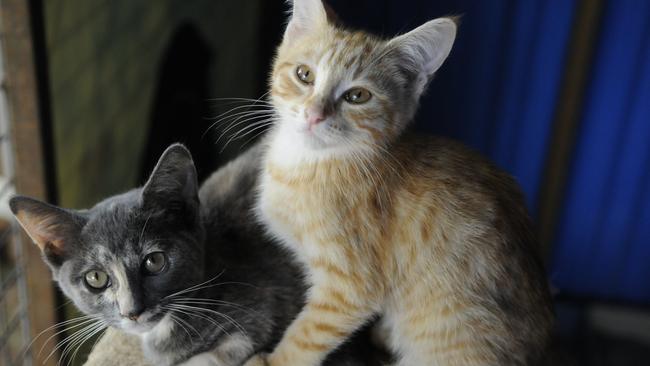New Tasmanian cat laws, March 1: More rules come into effect
Another tranche of new laws regarding the management of the state’s cats have come into effect. Here’s how they will affect you.
Politics
Don't miss out on the headlines from Politics. Followed categories will be added to My News.
One of the top organisations for cat breeding and registration in Tasmania has hailed Tuesday’s new laws further regulating cat ownership in the state as an “amazing” step forward.
Under the second round of changes to the Cat Management Act 2009:
– Cats over the age of four months must be microchipped and desexed (exceptions apply);
– A person must not keep more than four cats over the age of four months on an individual property without a permit (exceptions apply);
– Anyone wishing to breed a cat must be a registered breeder or hold a conditional permit to breed a cat. The State Government will no longer be registering cat breeders. A person will need to be a member of an approved cat organisation to be recognised as a registered cat breeder; and
– A person selling a cat will no longer have the option to enter into a Care Agreement on the sale of the cat. Any cat that is to be sold or given away must be eight weeks old, desexed, microchipped, vaccinated, treated for all internal and external parasites, and must have passed a health check from a veterinarian, prior to sale.
The new laws follow on from last March’s changes, which required cats in cat management facilities to be microchipped and desexed before being taken from the facility and allowed for trapping on private property and euthanasia by primary producers when cats were discovered on primary production land and production premises.

Fiona Ransley, president of the Tasmanian Feline Association, one of four bodies under the act which now have responsibility for registering breeders, said the changes were an “amazing thing”.
“It will help combat the surplus of unwanted cats and kittens, so it’s great for the environment,” she said.
“The only thing I worry about is the need to make sure it’s being followed through, if someone is advertising kittens for sale on Gumtree, the department needs to be given the resources to follow that up.”
Ms Ransley noted the new laws were stringent – if, for instance, you have a male cate which is not desexed, and it impregnates a female, then you are a breeder under the legislation, and liable if you are not registered as such.
Although not specifically addressed in the latest tranche of laws, Ms Ransley said she hoped the additional restrictions would lead to more people keeping their cats indoors.
“As much as I am a cat lover, I do understand the destruction they cause,” she said.
“I keep my cats indoors, that’s the way it should be.”
Accredited breeder Lyn Dowd, of Metanoia Bengals, agreed with Ms Ransley, that enforcement was key to the success of the new laws.
She said she hoped there would be “tracing” done for cats bred and sold illegally and that the department would monitor Gumtree and Facebook Marketplace for “backyard breeders”.
According to 2014 research, cited in the Tasmanian Cat Management Plan – Background Paper June 2017, up to 34 per cent of Tasmanian households own a cat, the highest rate in Australia.
Feral cats, meanwhile, are distributed “effectively statewide”, with no accurate population estimates, the background paper says.





